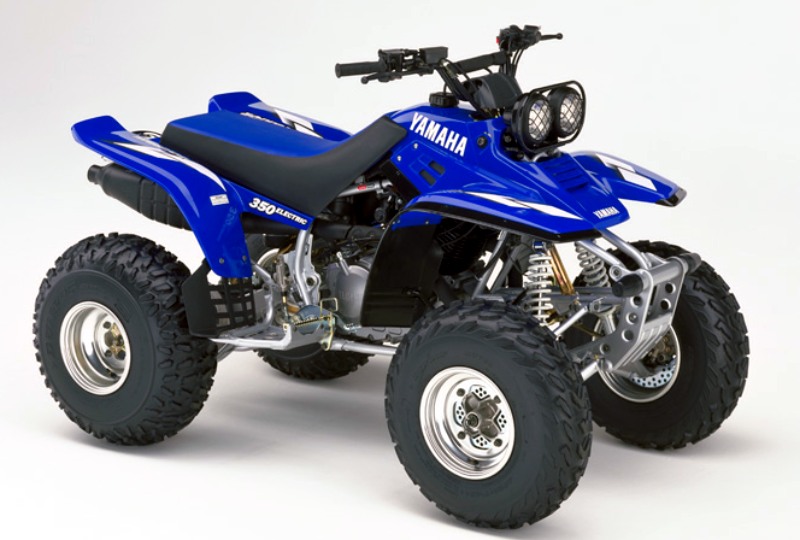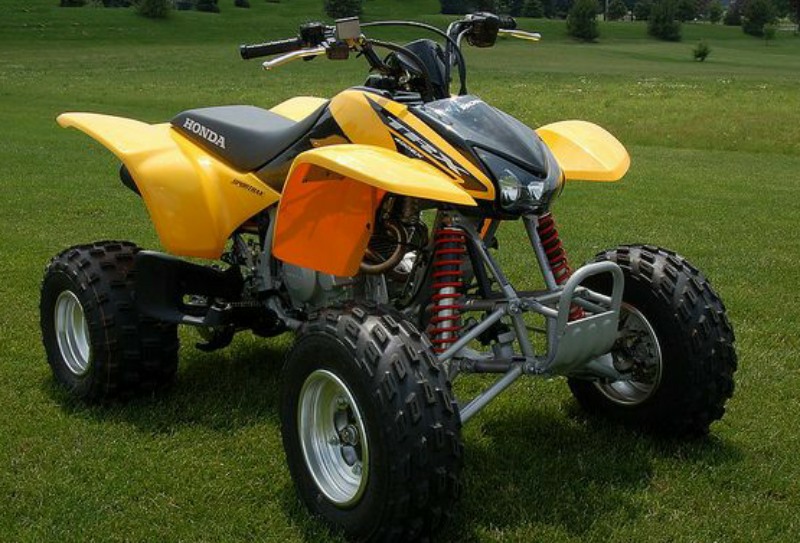Ask The Editors: Sport Quad Shootout

Machines that fall in that sweet-spot between performance and maintenance.
My dad is looking to purchase a quad this spring, and he’s considering the following two models. He’ll mainly be exploring logging/fire roads. He wants something that will do fine going pretty slow sometimes (when riding with my mom and sister, Kawasaki Bayou 250 and Kawasaki Lakota 300 respectively). I ride a 2001 Warrior 350, so there’s a chance I might sell it to him and get the LTZ400, if he decides it’s not for him.
What’s the power difference between the Warrior 350 and the LTZ400? I know it will have a higher top speed, but for light trails when not going full out, would the power difference be noticeable?
Which would be more comfortable for long rides?
Is the fact that the LTZ400 we’re looking at had the valves just shimmed a concern? One of my buddies had a bike that needed a rebuild almost immediately because of something to do with the new valve technology not lasting, so I don’t want to get into something like that…
I like old school reliability, so it being more of a modern “high tech” 4-stroke makes me nervous. Do they need rebuilding all the time like race quads do?
I’d totally go for a 400EX, but we both really value having reverse, and the ones new enough to have reverse are a little out of budget…
Any other quads we should be looking at? >$2K
Thanks in advance!
Well, if simplicity, stone-reliability and still decently ample trail performance are your objectives as it sounds like in your post, you are wise to stick with the Yamaha Warrior 350.
While the 350 vs 400 may seem like a pretty even keel on paper, the truth is these are two very different sport quads. The LTZ, as you surmised, is essentially no different than any one of the 450cc race quads of the era, making use of a liquid-cooled, DOHC, 4-valve high-performance single cylinder. The Warrior, by comparison, is running an air cooled, SOHC, 2-valve. The LTZ is by no means unreliable, but like all modern performance machines, should have frequent oil changes and top end refreshes in regular intervals, especially if it’s ridden hard.
Not that we recommend such things, but we’ve seen Warriors last decades with almost zero maintenance performed on them whatsoever. The engine is as close to bulletproof as you’re going to find.
The difference in power delivery will vary mostly based on the technicality of the trails you ride. The LTZ makes power quicker, is designed to hit the upper reaches of its spread with minimal run-in as is demanded in race applications. It can be a blast on a fireroads and speedy trail networks but muddy, wet and super technical trails actually favor the lower RPM/ decreased wheel-spin potential of a quad like the Warrior.

As far as other ATVs in this class – the aforementioned Honda 400EX is a dead ringer for what you seek – another air cooled, bulletproof machine with a bit more displacement. Do keep in mind that they did begin coming with reverse as of 2005 onward. The Honda 300EX is typically even more affordable, has reverse and may even be more resilient than the Warrior!
Comfort wise, none of the sport ATVs are going to feel remarkably comfortable for long-day rides when compared to the others. They boast similar geometries, favor an upright riding position and all use seats with minimal foam.
We don’t mean to intimidate anyone looking for the LTZ or similar (YFZ, TRX, KFX, LTR, etc.) lines but it sounds as if you are looking for simplicity, reliability and still some decent manual clutch performance – which means the Yamaha Warrior (and Raptor) 350, Honda 400EX and 300EX should be your top considerations.

